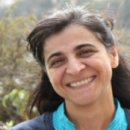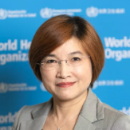Recaps of the day
Recap of Day 1
Recap of Day 2
Recap of Day 3
Recap of Day 4
Topics of the 8th World One Health Congress
This global event served as a platform for experts, researchers, and professionals from diverse disciplines to converge and exchange knowledge on critical topics related to One Health. One of the key elements in this process was the submission of abstracts, and to streamline the process and ensure that your research aligns with the goals of the Congress, we have provided a comprehensive list of topics that have been chosen from.
Scientific Program
The abstract driven sessions included: One Health Science (animal, plant and human health, zoonoses, pandemic preparedness and prevention), One Health Food, One Health Climate and Environment, One Health Socio-Economics, Equity and Capacity Building, One Health AMR.
Science Policy Interface Program
This track translates science into policy.
Keynote speakers


The University of Pretoria (UP) is one of Africa’s top universities and the largest contact university in South Africa. They produce socially impactful research to find solutions for the world’s most pressing issues.

Vetlink is our local congress organizer. Established in 1999, they have more than 20 years’ experience in congress organization in South Africa.
Our objectives
Bring together all stakeholders working in the One Health arena to discuss major One Health challenges and give the opportunity to share research data and policy developments.
Connect the dots between One Health science and public health security policy.
Through an open call for abstracts, highlight work from scientists and key opinion leaders in One Health around the world and bring evidence-based research and policy developments to the community.
Provide an opportunity to One Health Fellows to get involved in the Congress and an opportunity to students to present their research and participate in the Congress.













